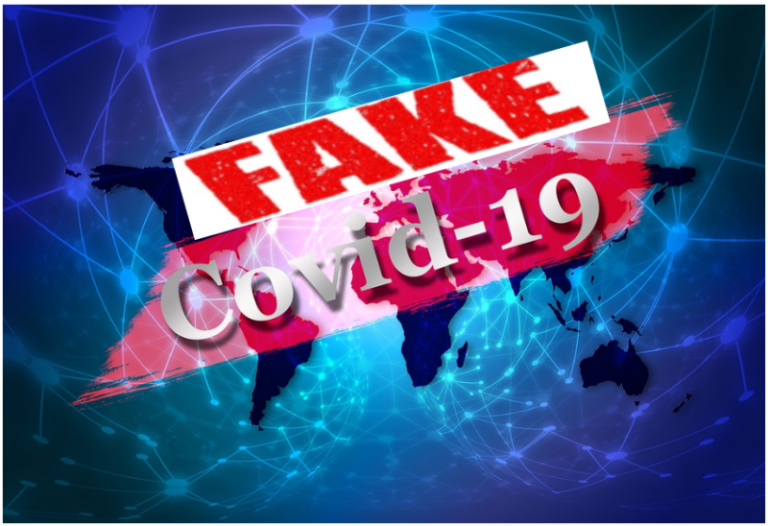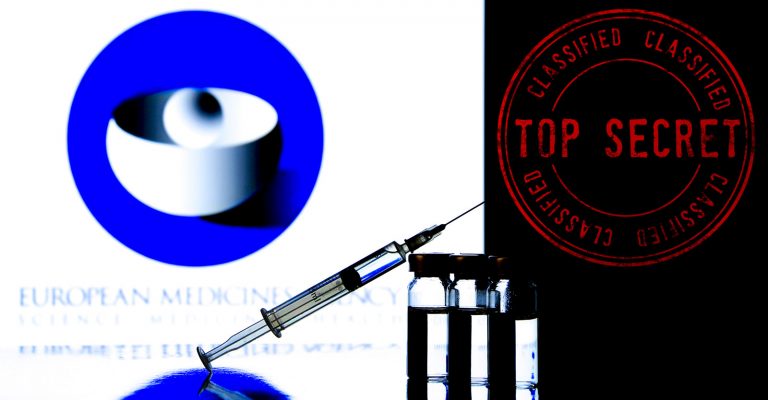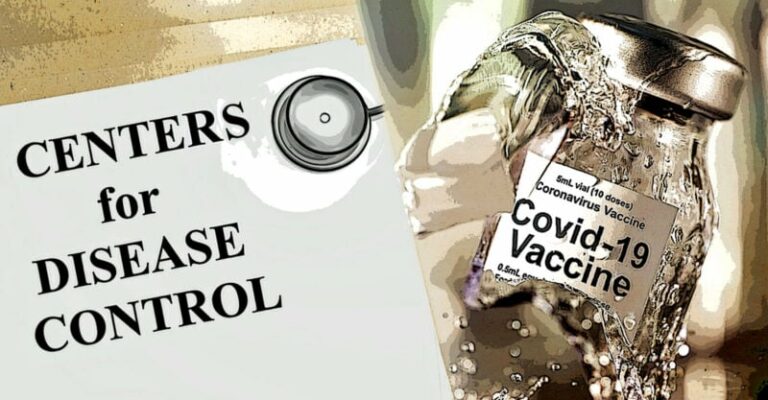WHO wants to make manipulation of public opinion mandatory for governments
WHO’s governing body has signed off on a draft resolution on the use of behavioural sciences in health policy. A pamphlet issued by the Rockefeller Foundation makes clear what it is really about: extensive manipulation of public opinion n the interests of a world authority that believes itself to be in possession of scientific truth.
The Executive Board of the World Health Organization (WHO), at a meeting that ended on February 7, has adopted a recommendation to the World Health Assembly, which will meet at the end of May, to pass a resolution with the title “Behavioural sciences for better health.” The basis is a draft resolution submitted by the USA together with eleven other countries, mostly in Asia.
The text of the proposed resolution states (in excerpts):
“The 76th World Health Assembly,
- Acknowledging that (…) interventions to change behaviour of either individuals regarding their own health or health service employees and health professionals requires a comprehensive and interdisciplinary approach that includes but is not limited to anthropology, communications, economics, neuroscience, psychology, and sociology;
- Concerned about the impact on behaviours of health-related misinformation and disinformation, including during the COVID-19 pandemic;
URGES member states (…)
- to develop and allocate sustainable human and financial resources for building or strengthening technical capacity for the use of behavioural science in public health;
- to establish behavioural science functions or units for generating, sharing and translating evidence, to inform a national strategy as appropriate;
RQQUESTS the Director General to,
- to mainstream behavioural science approaches in the work of the Organization and to advocate for necessary structural considerations, including as appropriate behavioural science teams, units or functions and for the allocation of sufficient funding and human resources;
- to support Member States, at their request, in developing or strengthening of behavioural science function(s) or unit (s);
- to evaluate, within existing resources, based on a prior request by the Member State(s) concerned, the behavioural science initiatives such as policies, interventions, programmes and research and share the results of such evaluations;
- to provide behavioural science-related technical assistance, normative guidance, capacity-building and knowledge sharing to the Member States on their requests including through the WHO Academy;
- to compile and disseminate evidence on improved outcomes resulting from the application of the behavioural sciences to public health
- to develop guidance, including through application of behavioural science, that addresses public health priorities including vaccines hesitancy, as well as misinformation and disinformation that conflicts with public health-based evidence.”
De facto, these behavioral science approaches and those who employ them will come overwhelmingly from top U.S. universities and are funded by major corporate-affiliated foundations, such as the Gates Foundation, the Rockefeller Foundation, and the Wellcome Trust.
Overall, the resolution might seem well-meaning and harmless to normal recipients. However, anyone who has looked more closely at WHO will think of announcements such as “We own the science” or the only recently issued goal of “vaccinating” no less than 100% of people over 60 and health care workers against Covid, the demonization of Covid vaccine skeptics in a WHO video, or WHO’s NSA-style monitoring of global social media, and will therefore read with a bit more suspicion.
Experience suggests that the WHO guidelines and the public evaluation of government action, which would both be issued only “upon request” will not be as voluntary and non-binding as is supposed to appear, especially for poorer countries that are dependent on donations from foundations, international organizations and richer governments.
It is also noticeable that WHO is only supposed to provide information about “improved” outcomes through the application of behavioural science, not about possible negative consequences. The authors of the resolution want to create the impression that such negative consequences or ethical problems cannot exist, if behavioral science is used to influence or manipulate people in favour of behaviors desired by an agency or government.
Praise from the Rockefeller Foundation
And that’s where the Rockefeller Foundation comes in, thankfully making it clearer what this is all about. In a tweet they have been thanking the WHO Board of Directors for embracing the resolution, while at thge same time introducing the Mercury program that they are funding together with the Gates Foundation.

Whether this praise for the WHO means that the Foundation was involved in writing the draft resolution, we do not know.
Mercury is a $25 million project. With such a budget, you can fund quite a bit of behavioural science. The project’s web page states:
“The Mercury Project is a consortium of social and behavioral scientists and practitioners committed to identifying cost-effective and scalable interventions to build vaccination demand. While considerable attention has been addressed to mitigating problems of vaccine supply, much less effort has been devoted to solving problems of vaccination demand (WHO 2022). Teams in the Mercury Project consortium are evaluating a portfolio of interventions that vary in settings, target populations, and risk/reward ratios, with the goal of identifying those interventions that most cost-effectively increase vaccination demand at scale (Kremer et al. 2021).”
Covid “vaccines” are explicitly counted among routine immunizations, whose positive balance of benefits and risks should be out of the question for everybody but the most misguided and radical vaccine seceptics.
The Mercury Projects
If you look at the description of the funded projects, you get a very clear sense of where things are headed: unabashadly in the direction of manipulation.
There’s an experimental program to combat misinformation about public health by local media in Tanzania:
“AFYA YAKO: Countering public health misinformation through local media in Tanzania
Partnering with local radio stations in Tanzania to produce weekly public health programs designed to combat misinformation, researchers will assess the effects of a four-month nationwide campaign, Afya Yako (“Your Health” in Swahili). The initiative will include a scripted radio drama and two-way dialogue encouraged through radio call-in.”
There’s also “a mega-study on boosting vaccination rates”:
“BOOSTING BOOSTERS AT SCALE: Partnering with large U.S. companies, researchers will simultaneously test different tactics designed to increase Covid-19 booster uptake. Interventions will include texts from trusted messengers as well as offers to subsidize transport costs to vaccination sites.”
There is a major joint project with Youtube to experimentally determine how best to “help people distinguish between true and false information and to reduce the spread of false information in online spaces.” What is right and what is wrong, mind you, is determined by the WHO (motto: “We own the science”).
Even more perfidious is the research project “Combating misinformation through messages created in communities.” In this project, researchers, in collaboration with Facebook and Youtube and local “non-governmental organizations” in Brazil, Mexico and the United States, are evaluating the effectiveness of health information “created by members of a specific community” to improve vaccination preparedness, and to see if it works better than the messages currently used by government experts and public health organizations. Of course, these messages are not developed by the paid influencers from the communities.
No less manipulative and disrespectful of people’s free will is the “Harnessing Influencers to Combat Misinformation” program. In this one, “positive social media influencers—high-profile journalists and social activists with relatively large local followings—will be provided with digital-literacy training resources and fact-checks, along with modest financial compensation.”
There are more such highly questionable approaches, in which people in poor countries with low levels of protection are used as cheap or defenseless guinea pigs for manipulation techniques. But the prize for the most cynical program goes to:
“TARGETING HEALTH MISINFORMATION NETWORKS: Network-transforming interventions for reducing the spread of health misinformation online
(…) A health misinformation monitor Twitter account will continuously track emerging health misinformation on English-speaking Twitter and deliver counter-messaging to the recipients of that misinformation, with the aim of motivating users to unfollow the source.”
Considering the possibilities that computers and artificial intelligence already offer today and will soon offer, the step to controlling and manipulating the entire flow of people’s information is not a big one. Only technocrats with totalitarian ambitions can fail to see any ethical problems worth discussing in promoting the use of such behavioral science approaches.
The choice of name for the Rockefeller project fits perfectly with the WHO’s claim to be godlike in sole possession of the single truth, which the public must believe. Mercury is the messenger of the gods in Roman mythology.
Conclusion
The power-drunk technocrats in Silicon Valley, Washington and Geneva must be stopped. The resolution must not be adopted in the World Health Assembly. And the WHO pandemic treaty, which in its circulating draft contains similarities to the resolution, must not be adopted. The federal government must not continue to support it. And the WHO must be forbidden to impose its one-sided and equally unscientific and corporate-friendly view of the one scientific “truth” through manipulation and censorship of social and other media.
Originally published on Money and More
Suggest a correction







